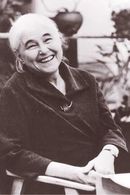Anna Seghers grew up in a wealthy Jewish home and studied art history, philosophy, history, and sinology in Cologne and Heidelberg. She completed her studies with a doctoral thesis on "Jews and Judaism in the Works of Rembrandt" in 1924. The same year, she wrote her first story, "The Dead of the Island of Djal," which was published posthumously in 1985.
In 1925, she married Lásló Radványi, a Hungarian social scientist, and had two children. Her first published story, "Grubetsch," appeared in the Frankfurter Zeitung in 1927, and she began to publish her works under the pseudonym Anna Seghers.
In 1928, she published the story "Uprising of the Fishermen of St. Barbara," which won the Kleist Prize. The following year, she joined the Association of Proletarian-Revolutionary Writers and the German Communist Party. Her novel "The Companions" was published in 1932, warning against the dangers of fascist rule.
After the National Socialists came to power in 1933, Seghers was briefly arrested and then emigrated to France, where she supported anti-fascist organizations and magazines. Her first exile novel, "The Head Wage," was written in 1933, and her second, "The Road Through February," was published in 1935.
In 1938 and 1939, she maintained correspondence with philosopher Georg Lukács. When German troops invaded France in 1940, Seghers withdrew to unoccupied Marseille and later left for Mexico, where she founded the Heinrich Heine Club, a German literary and cultural institution.
Her novel "The Seventh Cross" was published in 1942 and established her international reputation as a writer who defended herself against fascism. The novel was filmed in 1944 by American director Fred Zinnemann, and it tells the story of the escape of seven prisoners from a concentration camp in Rhine-Hesse and everyday life in the Third Reich.
In 1944, she published the novel "Transit," which describes her personal experiences and fears in exile, connecting the theme of loss and preservation of identity. The successful book is one of the most important works about the fears in exile.
In 1947, Seghers returned to Europe and initially settled in West Berlin, where she joined the Socialist Unity Party of Germany. She was honored with the Georg Büchner Prize in 1947 for her novel "The Seventh Cross." Anna Seghers was committed to reconstruction in Germany and became vice president of the Culture Association for the Democratic Renewal of Germany.
In 1948, she published the social novel "The Dead Stay Young," which was made into a film in 1968. In 1950, she moved to East Berlin, where she became a co-founder of the peace movement in the GDR and joined the presidium of the World Peace Council.
In 1951, she was awarded the GDR's first national prize, and a trip to China followed. She was a co-founder of the GDR Writers' Association and headed it from 1952 to 1978. In 1957, she completed the novella "The Just Judge," which was not published until 1990 due to political reasons.
In 1959, the University of Jena awarded her an honorary doctorate, and in 1967, she published the story "The Real Blue." One of her important late works is the title "The Crossing," a love story published in 1971. In 1981, she was made an honorary citizen of Mainz.



















